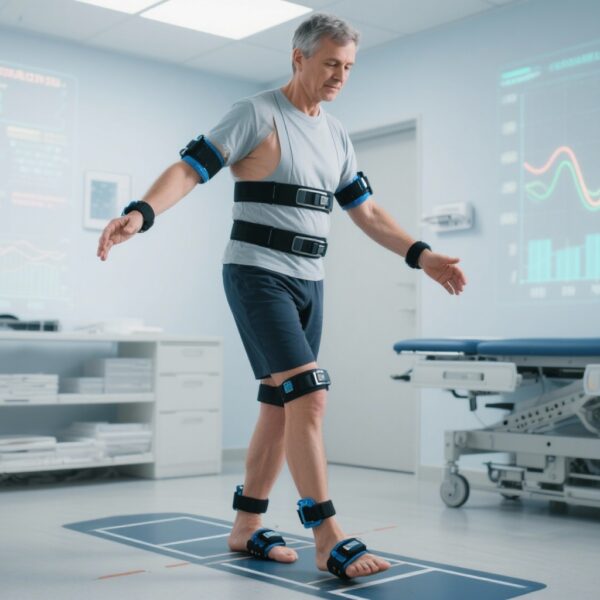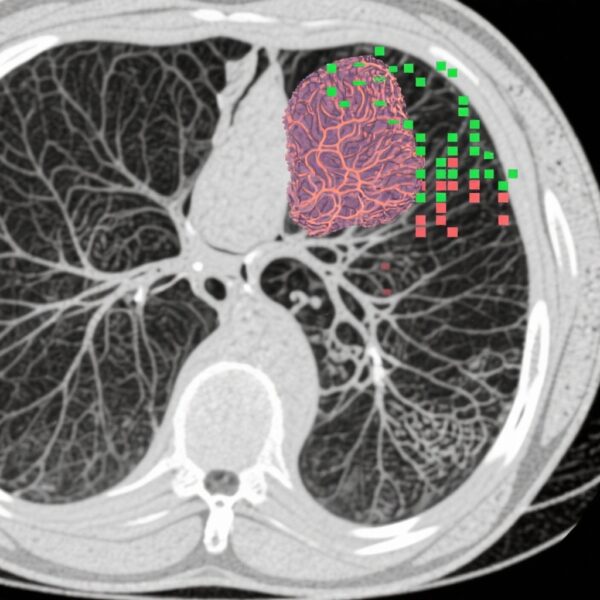Highlight
This multinational study expanded and validated the Global Registry of Acute Coronary Events (GRACE) scoring system version 3.0 to improve risk prediction and guide early invasive management in patients with non-ST-elevation acute coronary syndrome (NSTE-ACS).
The new machine learning models robustly predicted both in-hospital and 1-year mortality with excellent accuracy across diverse populations in ten countries.
An individualized treatment effect model identified patients likely to benefit significantly from early invasive coronary angiography and revascularization, supporting personalized therapeutic strategies beyond conventional approaches.
Study Background
Non-ST-elevation acute coronary syndrome (NSTE-ACS) encompasses a spectrum of clinical conditions ranging from unstable angina to non-ST elevation myocardial infarction, representing a substantial global cardiovascular burden. Clinical decision-making for these patients heavily relies on risk stratification tools to guide early invasive versus conservative management approaches.
The Global Registry of Acute Coronary Events (GRACE) score has long been used to estimate mortality risk and inform clinical pathways. However, the original GRACE models, especially version 2.0, lacked comprehensive external validation of sex-specific risk prediction and long-term mortality estimation across diverse geographic and healthcare settings. Furthermore, it was unclear which patients gained the most cardiovascular benefit from early invasive management. Addressing these gaps is critical for optimizing personalized care and improving clinical outcomes in NSTE-ACS.
Study Design
This large-scale international study assembled data from 609,063 patients diagnosed with NSTE-ACS between 2005 and 2024 from ten countries: England, Wales, Northern Ireland, Sweden, Switzerland, Germany, Denmark, Spain, the Netherlands, and Czechia.
The investigators developed a machine learning model to predict 1-year mortality using data from 400,054 patients in the UK regions. The original GRACE 3.0 in-hospital mortality model was incorporated and revalidated. Both models underwent external validation in cohorts from the other listed countries to assess discrimination, calibration, and clinical utility.
Separately, using data from the Danish VERDICT trial, a machine learning model was derived and externally validated to estimate the individual effect of early versus delayed invasive coronary angiography and revascularization on a composite outcome including all-cause death, recurrent myocardial infarction, refractory myocardial ischemia hospitalization, or heart failure admission over a median follow-up of 4.3 years.
Key Findings
The in-hospital mortality model demonstrated excellent discriminative ability, with an area under the receiver operating characteristic curve (AUC) of 0.90 (95% CI 0.89–0.91) on external validation across multiple countries. Similarly, the newly developed 1-year mortality model attained a time-dependent AUC of 0.84 (95% CI 0.82–0.86), confirming robust prognostic performance. Both models also exhibited good calibration and clinical utility as evidenced by decision curve analysis, confirming their reliability for clinical risk assessment in varied populations.
When compared to the earlier GRACE 2.0 score, the updated models improved mortality discrimination and facilitated superior risk reclassification, underscoring the added value of incorporating sex-specific and longer-term mortality predictive variables with machine learning techniques.
The individualised treatment effect model effectively stratified patients by predicted benefit from early invasive management. Patients with high predicted benefit assigned to early intervention had a significantly reduced risk of the composite outcome (hazard ratio 0.60, 95% CI 0.41–0.88), whereas those with no to moderate predicted benefit did not derive a statistically significant advantage (hazard ratio 1.06, 95% CI 0.80–1.40; interaction p = 0.014). These findings suggest that current guideline-based criteria might incompletely identify the subset of NSTE-ACS patients who could gain the most from early invasive approaches.
While safety endpoints were not the primary focus, no increased harm was observed in the high-benefit early intervention group, supporting the model’s potential to tailor treatment intensity safely.
Expert Commentary
This comprehensive validation of the GRACE 3.0 score represents a significant advance in personalized cardiovascular risk prediction for NSTE-ACS, extending beyond immediate in-hospital outcomes to long-term mortality risk and individualized therapeutic benefit. The integration of machine learning allows nuanced modeling of complex clinical variables and their interactions, outperforming traditional logistic models.
The study’s multinational design strengthens generalizability across healthcare systems and ethnic populations, addressing a critical limitation of earlier risk scores. Nonetheless, incorporating such models into routine clinical practice requires seamless integration with electronic health records and clinician education to realize their full potential.
Moreover, although the individualized treatment effect model is promising, prospective clinical trials are warranted to validate its utility in guiding invasive strategy decisions and improving patient-centered outcomes. Potential limitations include residual confounding inherent to observational registry data and the challenge of capturing dynamic clinical changes over time.
Conclusion
The updated and externally validated GRACE 3.0 scoring system offers clinicians a practical, evidence-based tool to enhance risk assessment and personalize management strategies in patients with NSTE-ACS. By accurately predicting both short- and long-term mortality and stratifying patients according to anticipated benefit from early invasive treatment, these models pave the way for precision cardiology approaches. Future research opportunities include prospective trials testing individualized treatment algorithms and integration into clinical decision support systems for broader implementation.
Funding and Clinical Trial Registration
This study was supported by the Swiss Heart Foundation, University of Zurich Foundation, Kurt and Senta Herrmann Foundation, Theodor and Ida Herzog-Egli Foundation, and Foundation for Cardiovascular Research-Zurich Heart House. Data from the Danish VERDICT trial were utilized for treatment effect modeling.
Reference
Wenzl FA, Kofoed KF, Simonsson M, Ambler G, van der Sangen NMR, Lampa E, Bruno F, de Belder MA, Hlasensky J, Mueller-Hennessen M, Smolle MA, Wang P, Henriques JPS, Kikkert WJ, Kelbæk H, Bouček L, Raposeiras-Roubín S, Abu-Assi E, Azzahhafi J, Velders MA, Stellos K, Engstrøm T, Chan Pin Yin DRPP, Weston C, Adlam D, Rickli H, Giannitsis E, Radovanovic D, Parenica J, Antoniades CA, Fox KAA, D’Ascenzo F, Ten Berg JM, Køber LV, James S, Deanfield J, Lüscher TF. Extension of the GRACE score for non-ST-elevation acute coronary syndrome: a development and validation study in ten countries. Lancet Digit Health. 2025 Oct 16:100907. doi: 10.1016/j.landig.2025.100907. Epub ahead of print. PMID: 41107201.



